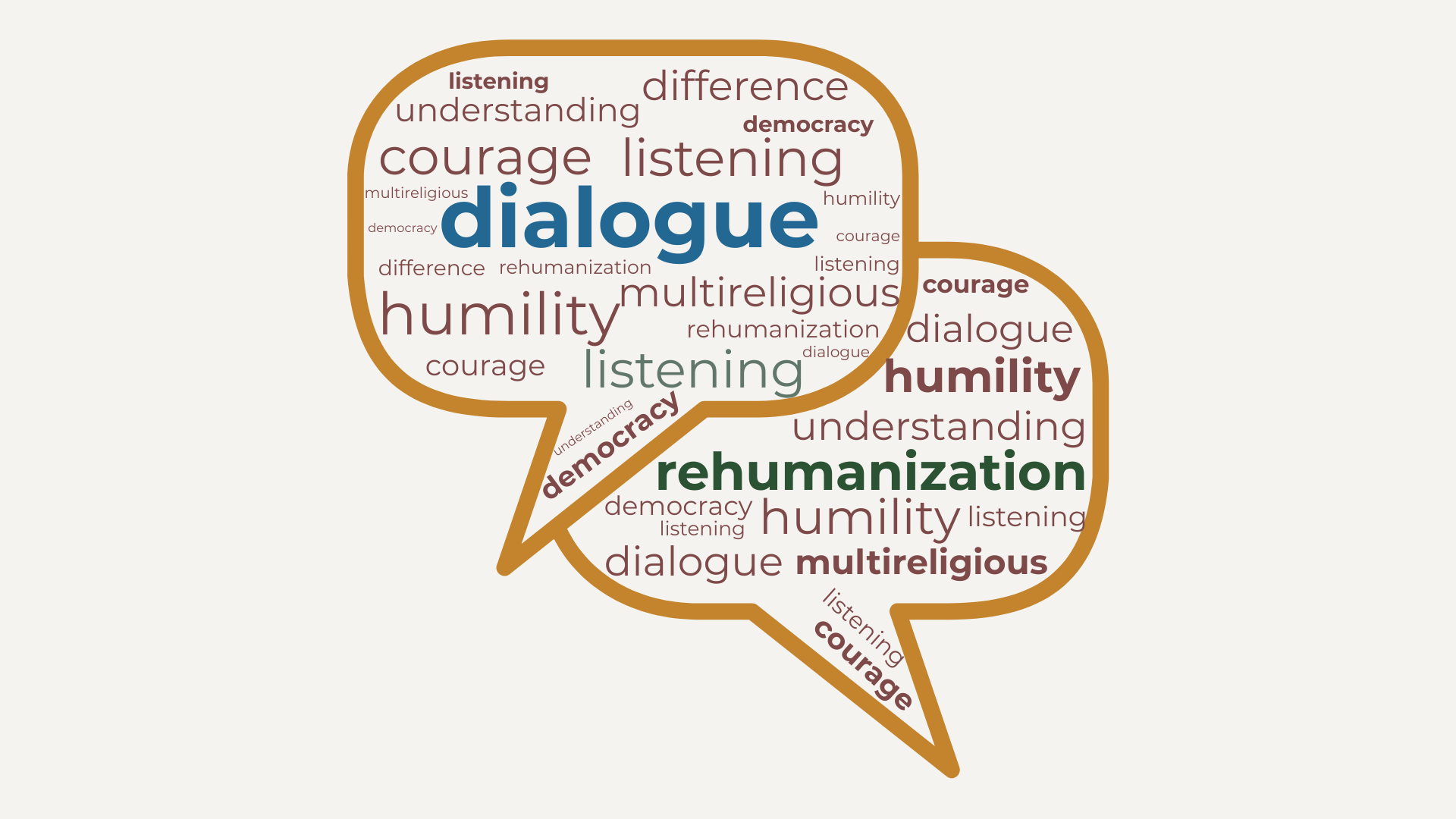
Right now, our civic fabric feels fragile, stretched thin and frayed by anger, fear, and the weight of vigilante violence. Can we talk about our deepest differences?
In moments like this, it is tempting to go to extremes—to divide ourselves into warring camps who lash out at opponents, or opt out of public conversation all together and retreat into silence. But at ICJS, we strive to hold onto our organizational commitment to dialogue, even when it is hard.
Especially when it is hard.
ICJS’s commitment to dialogue rests upon the belief that every person—no matter how different or disagreeable—bears inherent worth. In dialogue, we resist the temptation to dehumanize our neighbors and indulge in a politics of hatred. Dialogue is a practice of rehumanization in a dehumanizing age. It begins with listening first, seeking understanding, and recognizing the dignity of the person across from you.
“Dialogue invites us to bring our commitments to each conversation and calls for patience, humility, curiosity, and courage. The outcome of dialogue does not require agreement, and meaningful relationships can exist even where there are irreconcilable differences. We believe that dialogue around religious difference deepens understanding and is an essential tool for connecting communities.”—ICJS Value of Dialogue
Too often, what passes for dialogue today looks more like combat: Prove me wrong. That style of interaction prizes quick rebuttals with a goal of prevailing in an argument. It treats the other person as an opponent to be defeated, rather than a human being to be understood or a neighbor with whom we can build community. This adversarial posture feeds polarization, deepening mistrust and suspicion.
A thriving multireligious democracy demands that we must find another way.
We also recognize at ICJS that dialogue is not always possible. Sometimes grief is too raw, emotions too overwhelming, or that interlocutors are unwilling. People grieve different things—the loss of a public figure, the loss of safety, the loss of a vision for the country. In moments like these, a dialogical response can be to sit with pain and sorrow, both our own grief and our neighbor’s grief. Dialogue asks us to honor that diversity of grief without diminishing it.
Importantly, dialogue does not require us to give up our commitments or core beliefs. Rather, it is a civic practice that we need to cultivate in order to better live together with our differences. Dialogue is essential for weaving a shared civic fabric. It requires humility and courage: humility to be unsettled, and courage to stay curious, and to stay in relationship.
Join us in the sacred, civic practice of dialogue.
September 25, 2025